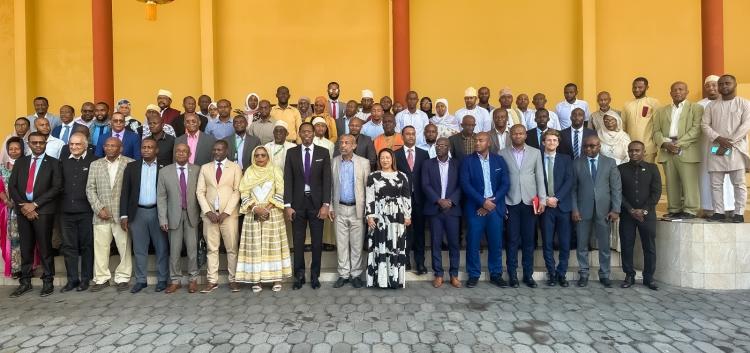REPAIR: Building climate resilience in the Comoros

On September 26, the Regional Emergency Preparedness Project for Inclusive Recovery (REPAIR) was officially launched in Comoros by the World Bank and African Risk Capacity Ltd (ARC Ltd.).
Comoros is the first of 11 vulnerable countries in Eastern and Southern Africa to launch this innovative regional program that aims to strengthen the country’s financial and operational preparedness to cope with climate shocks. REPAIR is based on three key principles: the speed of disbursement of funds, flexibility of procedures and sustainability of financing.
Many African countries currently face the challenge of more frequent and more severe disasters due to climate change. These impact communities directly but can become more severe as a lack of pre-arranged funds for a quick response can lead people to negative coping mechanisms as help doesn’t arrive fast enough. REPAIR aims to boost financial resilience against climate shocks in Africa through a regional climate risk fund with a variety of instruments for shocks of various magnitude and frequency. This includes parametric insurance, contingent financing, and reserves, among many others.
Bacar Mvoulana (Minister of Education, Comoros), speaking on behalf of his colleague from the Ministry of Finance, Ibrahim Mohamed Abdourazak, said, “We are convinced that this program will lay the foundations for sustainable growth and innovative actions in adapting to climate change”. During the launch, Bacar Mvoulana also announced the opening of an account in the Central Bank Treasure, integrated into the National Fund for Emergency Response and Resilience to the Effects of Natural Disasters.
Boubacar Sid Barry, World Bank representative in the Comoros, highlighted the importance of the country as a "pioneer in this initiative for adaptation, resilience and climate justice in the face of the increasing frequency and scale of natural disasters”
REPAIR is led by the World Bank, with financial support from the Global Shield Financing Facility (GSFF) and ARC Ltd as the implementing partner, an affiliated institution of the African Union.
